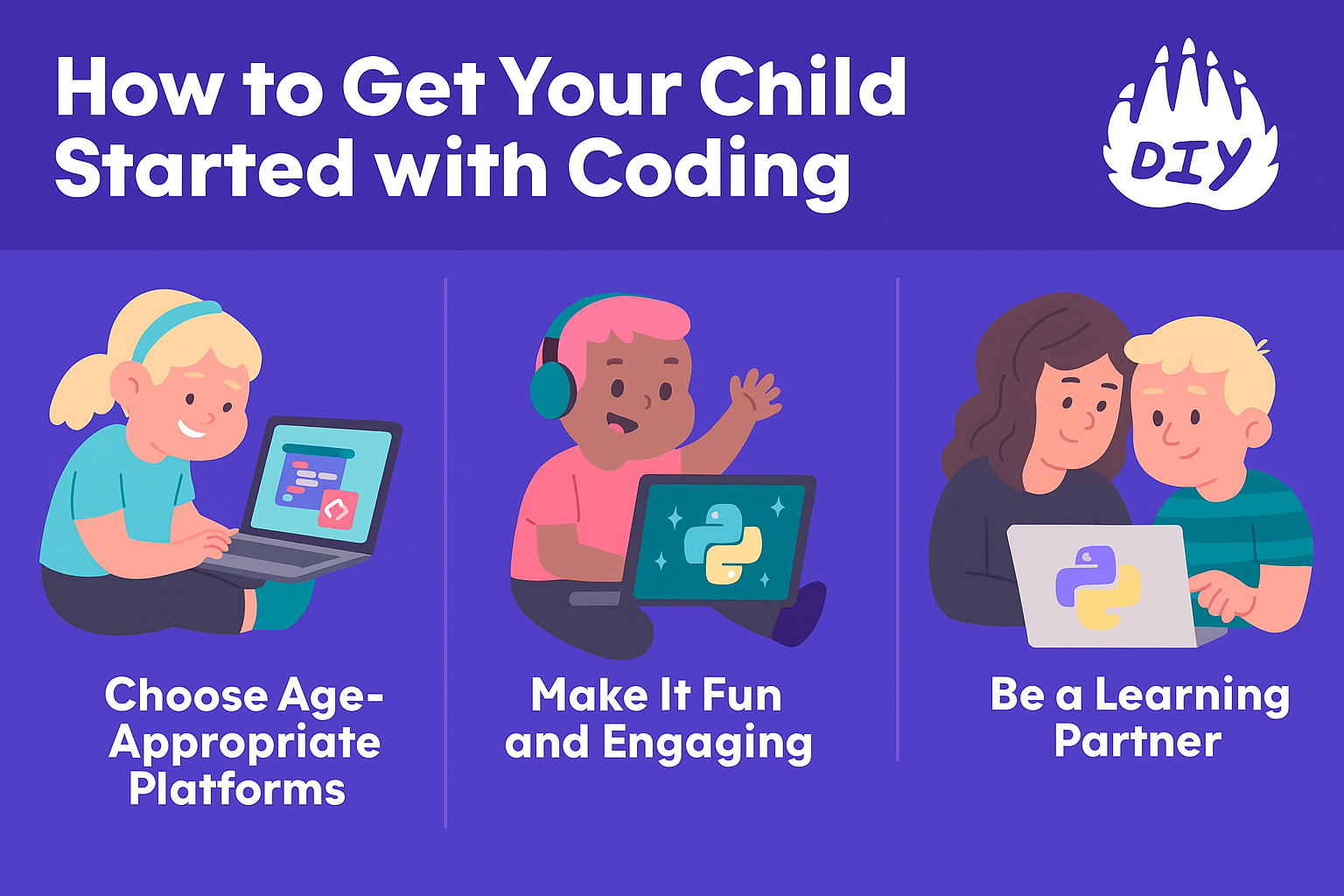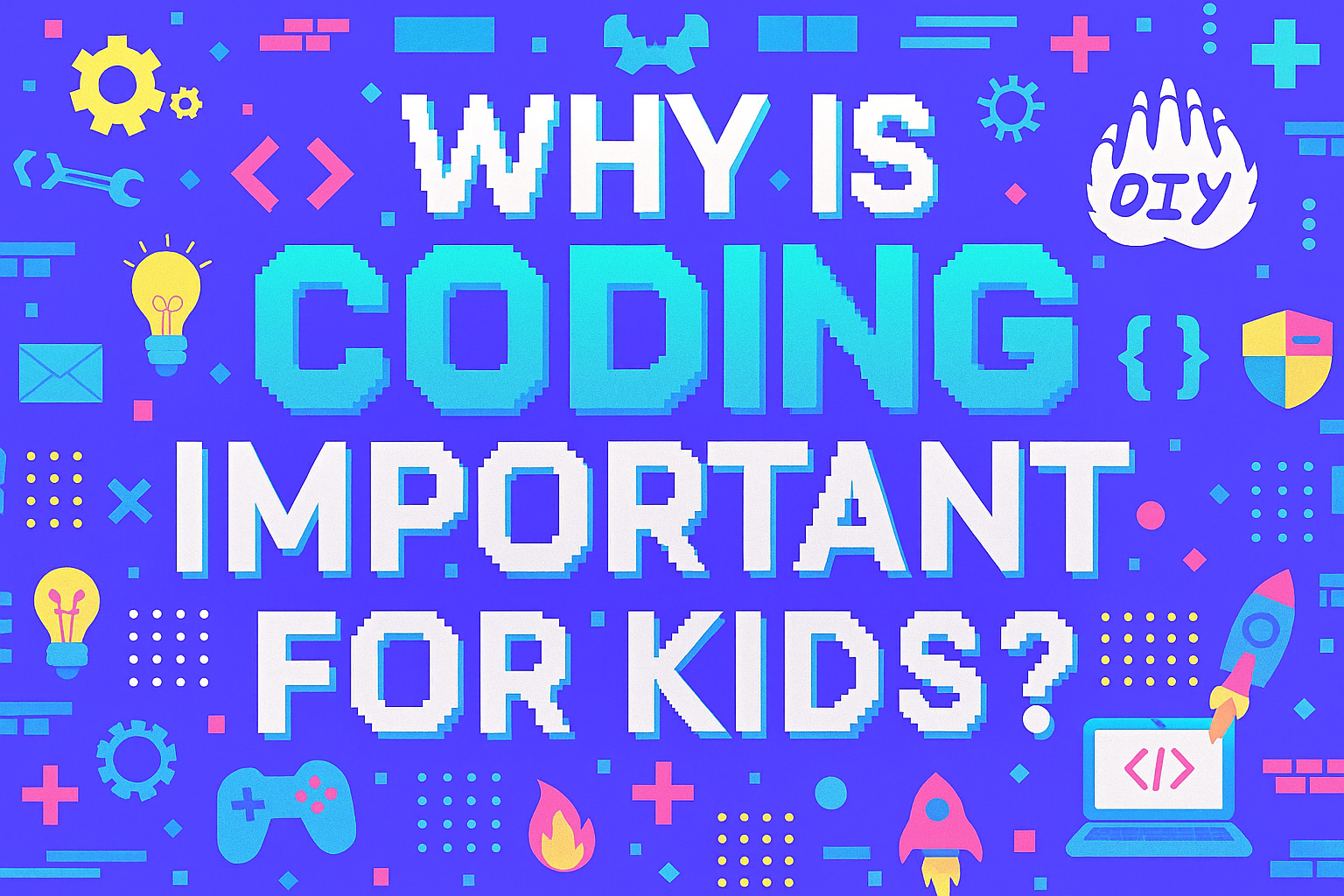In today’s tech-driven world, coding is the new literacy. Just as reading and writing open doors to opportunity, coding empowers kids to understand and shape the digital world around them. Whether your child dreams of being an engineer, artist, or entrepreneur, learning to code builds life skills that extend far beyond a screen.
1. Builds Problem-Solving and Logical Thinking Skills
Coding teaches kids how to break down complex problems into smaller steps. This kind of logical thinking helps them:
Develop stronger critical thinking
Analyze and fix errors (debugging)
Build resilience by working through challenges
These skills apply to any subject math, science, even reading comprehension making coding one of the most transferable skills for kids.
2. Encourages Creativity and Self-Expression
Coding isn’t just numbers and syntax, it's a tool for creativity. Kids can:
Build their own games
Animate interactive stories
Design simple websites
Platforms like DIY, Scratch, or Code.org turn coding into fun projects kids can actually share, making learning interactive instead of intimidating.
3. Prepares Kids for Future Careers
The U.S. Bureau of Labor Statistics predicts computer and IT jobs will grow 15% by 2032. But even outside tech careers, coding skills give kids an edge by teaching them how technology works.
Starting early gives children a head start on:
Foundational computer science concepts
Exploring STEM fields
Gaining a competitive advantage in the job market
4. Builds Confidence and Independence
When kids create something from scratch a game, app, or animation they experience the confidence of building something real. By experimenting, making mistakes, and improving, they develop a growth mindset that helps them tackle bigger challenges with independence.
5. Supports Digital Citizenship
Understanding how software works helps kids become responsible digital citizens. Instead of just consuming apps and websites, they learn how to question, create, and protect their digital presence.

How to Get Your Child Started with Coding
You don’t need to be a tech expert to guide your child. Here are simple ways to start:
Choose Age-Appropriate Platforms
Ages 5–8: Visual, block-based coding like ScratchJr
Ages 8–12: DIY.org coding challenges, Tynker, or Code.org
Teens: Python, JavaScript, or game development tools
Make It Fun and Engaging
Encourage project-based learning
Let them build games, apps, or digital art
Celebrate small wins and creativity
Be a Learning Partner
Show interest in their projects
Ask questions about what they’re building
Explore coding courses or games together
FAQs about Coding for Kids
What age should kids start coding?
Kids can start as early as 5 with block-based coding. The earlier they begin, the more natural problem-solving feels.
Is coding hard for kids?
Not at all! With the right platforms, coding is like learning a new language through play.
Do kids need strong math skills first?
No. Coding actually helps improve math by applying logic and patterns in fun, real-world ways.
Can coding help school performance?
Yes. coding strengthens focus, planning, and analytical thinking, which boost performance across multiple subjects.
Author: DIY Team Last Updated: June 25, 2025 References: Bureau of Labor Statistics, Code.org, Scratch Foundation



